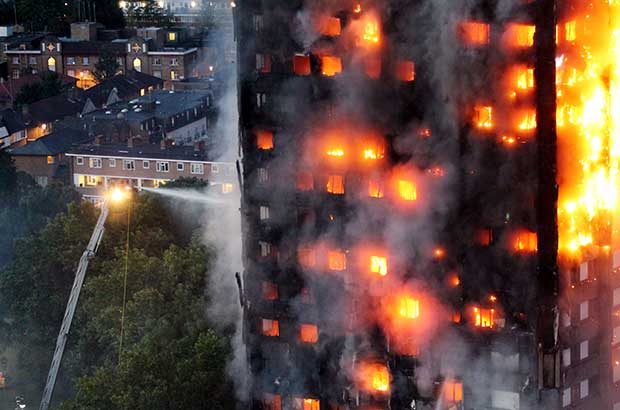This week’s appalling tragedy at Grenfell Tower shocked the nation. The massive fire that engulfed the building claimed countless lives – authorities fear the exact number may never be known – put dozens in hospital and made many more residents homeless. It has also left people scared, angry and searching for answers.
How could this happen in one of the richest and most safety-conscious countries in the world? An investigation is now under way into the cause of the fire. The Prime Minister has said there will be a full public inquiry. Experts have pointed at the exterior cladding’s polyethylene core as a cause of the fire spreading. One residents’ group at the west London estate warned last year of a fire risk at the council-owned block.

The Grenfell Tower fire has prompted a wider debate on the standard of social housing blocks across the country. Back in 2000, when Gordon Brown was at No 11 as Chancellor, he promised to improve the nation’s stock of social housing. Brown introduced the ‘Decent Homes Standard’ in 2002, aiming to repair homes owned by councils and housing associations. A lot of money was spent – £20bn – doing repairs and refurbishment work to make sure homes were warm, safe and watertight.
A great deal of improvement did take place. A 2010 report by the Communities and Local Government department showed almost 90 per cent of social housing stock met the Decent Homes Standard. And yet 10 per cent of Britain’s social housing was still considered “non-decent”.

Serious safety concerns have been raised since then. According to a 2011 study by the Chief Fire Officers Association and Chartered Institute of Housing, only 27 per cent of housing managers in the sector felt confident their buildings were “fit for purpose” regarding fire safety. And in 2013, the All-Party Parliamentary Group on Fire Safety and Rescue advised installing new systems and sprinklers in 4,000 towers across the UK – a recommendation not acted upon.
All tenants have rights – and all councils and housing associations have complaints procedures
There have also been concerns about disabled tenants living in unfit homes because some local authorities have not adequately adapted them. The charity Leonard Cheshire recently estimated that 300,000 disabled people are still living in unsuitable homes.









